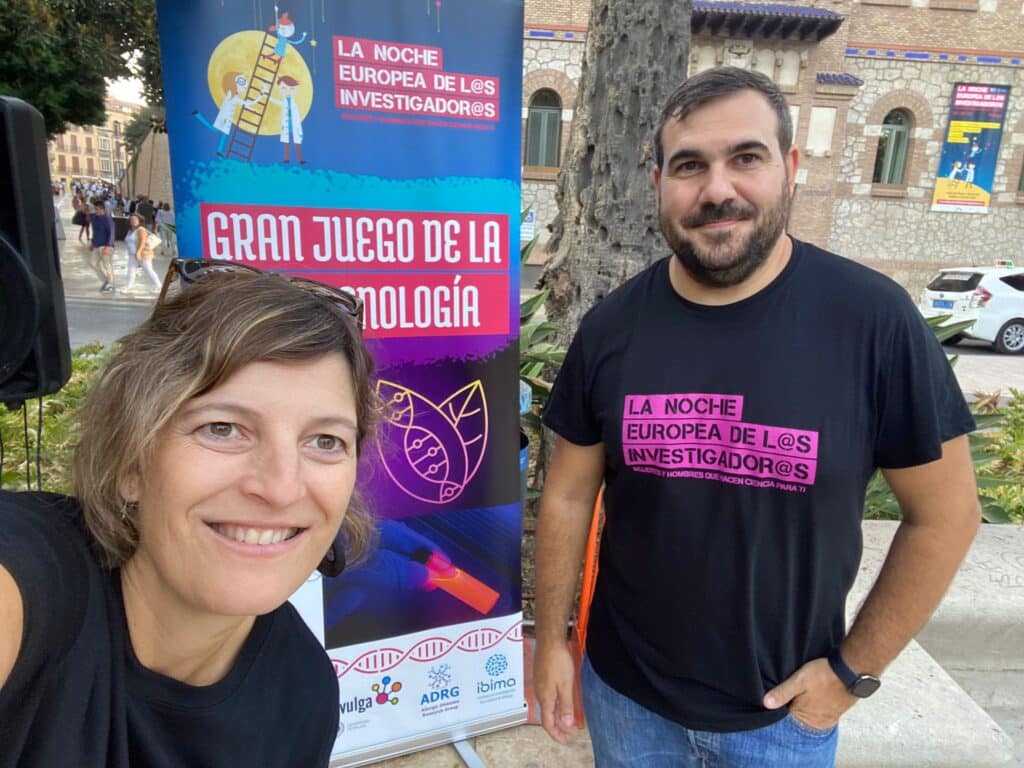Understanding the role of B cell phenotypes as a predictor of the efficacy and prognosis of allergen immunotherapy using allergic rhinitis to house dust mite as a model
Financed by: European Union
Programme: H2020- Call: HORIZON-MSCA-2022-PF-01-01 – MSCA Postdoctoral Fellowships 2022
Grant agreement ID: 101105416
Duration: April 2023 – July 2025
Beneficiary: Carlos Aranda
Supervisor: Cristobalina Mayorga Mayorga
Implementation centre: University Regional Hospital of Málaga
Research group of IBIMA involved: Drug and Allergen Allergic Diseases

ABSTRACT
Allergic rhinitis (AR) is one of the more prevalent respiratory allergic diseases, affecting 20-30% of the global population. The inflammatory process is mediated by eosinophil infiltration and IgE secreted by plasma cells. IgE is a key component in allergies, so understanding IgE production and its inhibition is important for treating these diseases. Allergen immunotherapy (AIT) is the only treatment that targets the etiology of allergic diseases. However, the efficacy of the treatment reaches 70-80% in the best scenarios (lower for food allergy), it has a high cost, and most importantly, prediction of the effectiveness of the treatment is not possible with current biomarkers.
In this proposal, the candidate seeks to better understand the phenotypes of B cells, key cells implicated in allergy that are modified with AIT. The knowledge generated by this study will provide biomarkers of AIT prognosis and even predict the outcome of the therapy by analyzing the B cell compartment in patients who are candidates for AIT.
Using very innovative approaches, we will analyze the B cell repertoire involved in the resolution of AR through AIT. The B cell repertoire will be analyzed in bulk before and after AIT. In addition, antigen-specific B cells will be immortalized so the antibody sequence as well as reactivity can be studied. Moreover, we will perform an ex vivo class switch assay that could potentially predict the outcome of AIT using cytokine microenvironments like those produced by the therapy and/or the pathogenic situations. B cell switching from IgD/M or IgG1 to IgG2/4 appears to be a critical step in the effectiveness of AIT because IgE memory resides in the IgG compartment. We will use AR to house dust mite patients as a model, as it is one of the most prevalent allergic diseases.
Communication Actions
🎥 World Allergy Week | Interview with Dr. Carlos Aranda Clemente
To mark the start of World Allergy Week, IBIMA Plataforma BIONAND presents an interview with Dr. Carlos Aranda, Marie Skłodowska-Curie postdoctoral researcher at our institute and member of the “Drug and Allergen Hypersensitivity Diseases” group, led by Drs. María José Torres Jaén and Cristobalina Mayorga.
With a background in inflammatory bowel disease research and immunology training in the U.S. (NYU and Mt. Sinai), Dr. Aranda now leads the EU-funded PRE-BIT project, aiming to better understand the role of B cells as predictors of efficacy and prognosis in allergen immunotherapy, using house dust mite allergic rhinitis as a model.
Don’t miss this inspiring testimony you can find bellow
Participation of Dr Carlos Aranda in European Researchers’ Night 2023
🔬 On September 29th 2023, Dr. Cecilia Frecha, showcased their groundbreaking research at ‘The European Researchers’ Night’ in Málaga using gamification techniques to make biomedical science engaging for everyone. 🎮
Check how it was clicking on any of our social media profiles





